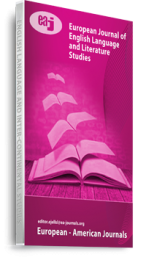Over the years, English Language has been accorded a very high prestige in Nigeria.The status and functions given to English in Nigeria has made it become imperative for every Nigerian citizen to learn how to speak, read and write the language. This is as a result of the pluralistic linguistic situation of Nigeria which has made it impossible for national language. This accounts for why English has been allotted prestigious domains of use in Nigeria. This study was undertaken to investigate and shed more light on the effect that mother-tongue influence has on spoken English in Nigeria. The focus of this study is on selected mother-tongue factors affecting English language in Nigeria. In order to manipulate variables properly to achieve tenable results, this study will focus on the phonetic and phonological levels of mother-tongue interference. 150 Ikom learners/users of English were sampled from SSS3 students selected from three secondary schools in Ikom Local Government Area, Cross-River State, where Ikom is their native language. Tape recorders and smart recorders were instruments of data collection alongside (phonetic) articulation tests. The technique employed in the analysis of data was descriptive and quantitative. The sources of data were relevant textbooks, magazines, journals, libraries (online and offline) and the internet. The findings revealed that, the mother-tongue of Ikom learners/and users of English negatively influences their spoken English, significantly in their articulation of English consonants, vowels and consonant clusters; and suprasegmentals such as stress and intonation.
Keywords: English Language, English language usage, Ikom local government area, Mother tongue, mother-tongue factors

